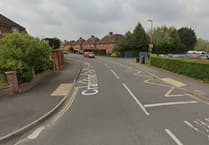PETERSFIELD ambulance station will close in the next two years as the service across Hampshire undergoes a £10m reorganisation. East Hampshire district councillors were told this week that the decision to close Petersfield and the 18 other ambulance stations across Hampshire and replace them with three superstations had been taken in a bid to update the service and make it more efficient. Speaking to members of the central area community committee on Tuesday night, Rob Ellery, head of strategic initiatives for the Hampshire Ambulance Service NHS Trust, said that in common with many other stations Petersfield would have needed a "significant amount of work" to bring it up to standard. "Some of our stations are 60 years old, and continued spending on a 60-year-old building is not a good way to invest," he said. Instead the reorganisation would be financed by the £10 to £11m which would be generated by the sale of all the stations. He said the target for modernising the service in Petersfield was two years, adding: "I think it will be a year and a half before you see any change in the Petersfield station." But he stressed that the changes were being made for greater efficiency and to meet the needs of patients in local communities. It was not about saving money. "This is not about cost, it is about modernising and taking a step up, but we have to change our estates strategy to do it," he told councillors. He said the changes would bring greater benefits to Petersfield people, with ambulances being able to mobilise faster and deal more quickly with emergencies. There would remain, he said, standby points where ambulances waited to answer calls, both to the west and to the east of the town. Hampshire Ambulance Service announced the closure of its stations earlier this year. Ambulance chiefs said it was planned to replace them with a "hub and spoke system". This would consist of three "superstations", in Southampton, Basingstoke and Portsmouth, and a network of standby points across the county. The announcement sparked fears that people in rural areas would have to wait longer for help in emergencies. But, Mr Ellery told councillors on Tuesday night, the changes were designed to improve the service. He said the service had changed in the last 20 years. "It is now about healthcare in the community and local links with the community, it is not just about going to patients and taking them to hospitals," he added.

-(1).jpg?width=209&height=140&crop=209:145,smart&quality=75)

